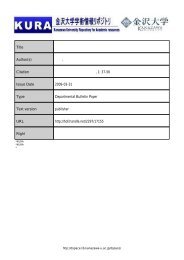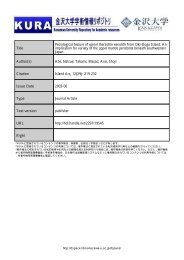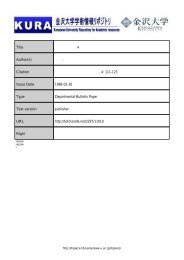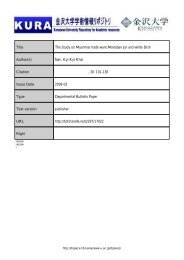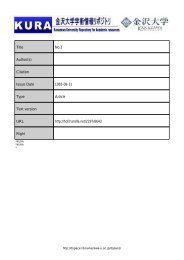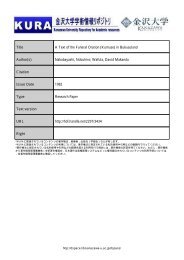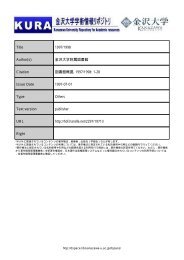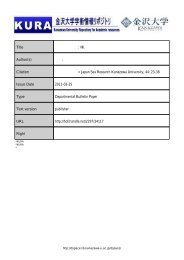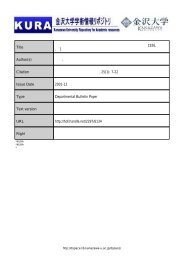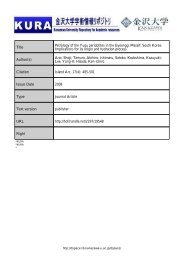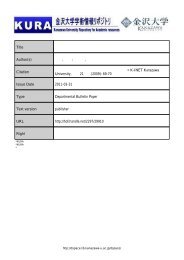Title Increased serum levels of a proliferation-inducing ligand in ...
Title Increased serum levels of a proliferation-inducing ligand in ...
Title Increased serum levels of a proliferation-inducing ligand in ...
Create successful ePaper yourself
Turn your PDF publications into a flip-book with our unique Google optimized e-Paper software.
Introduction<br />
Autoimmune bullous diseases are characterized by autoantibodies aga<strong>in</strong>st specific<br />
adhesion molecules <strong>of</strong> the sk<strong>in</strong> and/or mucous membrane. For <strong>in</strong>stance, patients with<br />
pemphigus vulgaris (PV) carry autoantibodies specific to a desmosomal prote<strong>in</strong><br />
desmogle<strong>in</strong> 3 (Dsg3), while bullous pemphigoid (BP) is dist<strong>in</strong>guished by autoantibodies<br />
directed aga<strong>in</strong>st a hemidesmosomal prote<strong>in</strong> called BP180. Although these<br />
autoantibodies are widely known to play a primary role <strong>in</strong> the disease<br />
manifestation[1-5], both <strong>in</strong> animal models and human, it rema<strong>in</strong>s unknown how these<br />
disease-specific autoreactive B cells and autoantibodies are <strong>in</strong>duced.<br />
Recent evaluation on the role <strong>of</strong> B cells <strong>in</strong> autoimmune diseases has <strong>in</strong>dicated that B<br />
cells have more critical functions <strong>in</strong> regulat<strong>in</strong>g immune responses than just the<br />
precursors <strong>of</strong> antibody-secret<strong>in</strong>g cells. Furthermore, B cell depletion therapy with<br />
anti-CD20 monoclonal antibody turned out to be effective <strong>in</strong> the management <strong>of</strong><br />
- 5 -



